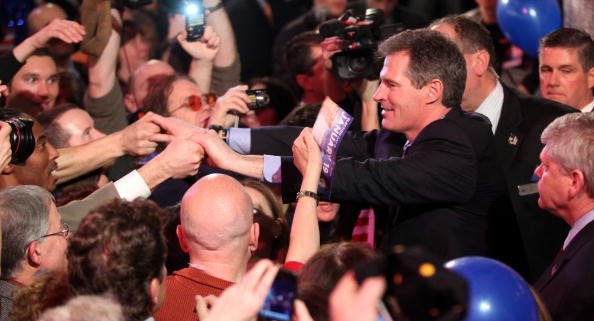“That a rather obscure Republican could win a Senate seat held for forty years by Democratic Party patriarch Edward Kennedy is an event of national significance for the U.S. and a victory that will have an impact internationally,” comments Dmitri Trenin.
“It means that the Democrats are loosing qualified majority of 60 votes out of 100 needed to pass bills without any holdups and to ratify international agreements. This will make healthcare reform harder to carry out, and in the future will also make it harder to ratify the not yet signed START treaty and the Comprehensive Test Ban Treaty. Aside from the outright weak campaign of the Democrat candidate Coakley, as opposed to Brown’s own energetic and memorable finish, there are several reasons for the Republican victory.
"America did not ‘turn left’ as Bush’s term in office drew to a close. Around a quarter of voters quite steadily define themselves as liberals, a little more than a third see themselves as conservatives, and the rest are centrists, or ‘moderates.’ The Democrat victories in elections in 2006 and 2008, that gave them first a solid majority in both houses of Congress, and then the White House, were obtained with the support of these ‘moderates’ – independent voters not aligned with either of the two parties. Rejection of Republican policies is wearing off now, the enthusiasm that came with Obama’s triumph and Bush’s departure is fading, and some of the Democrats’ actions are starting to raise questions, particularly various aspects of the very complex healthcare reforms.
“Furthermore, American voters prefer not to put all the power into just one set of hands. After the 2008 elections, the Democrats got so much power that some people even started calling the U.S. a ‘one-party state’ – not to be confused, of course, with the Soviet Communist Party, or Japan during the Liberal Democratic Party’s domination.
“Whatever the case, American democracy continues to spring surprises on us. This is in keeping with the nature of democracy, because people are fickle in their preferences. This is also in keeping with the nature of American voters, who do not like to let the government – any government – get above them.”
